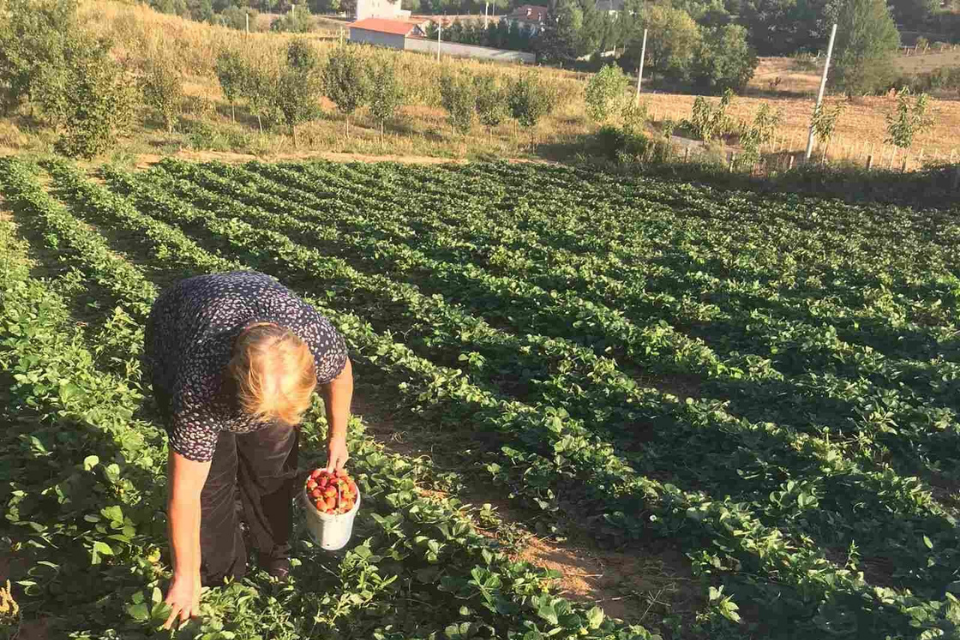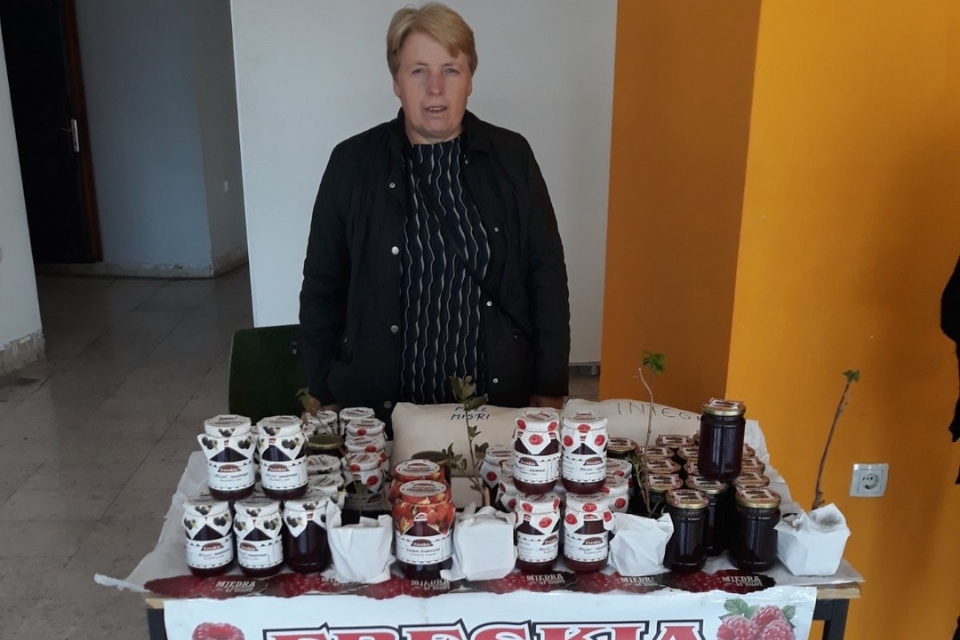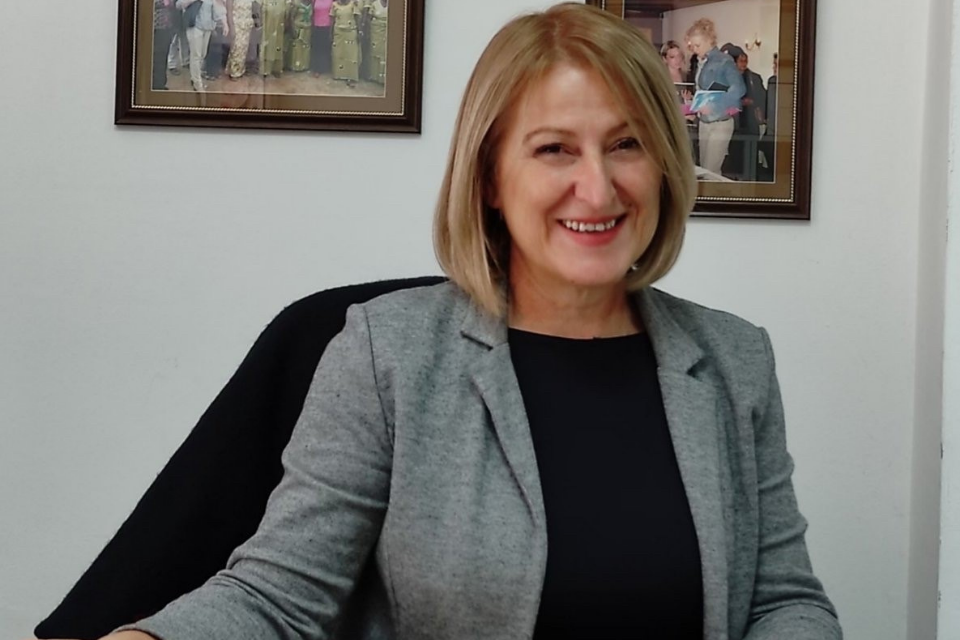In Kosovo, gender-responsive budgeting raises hope for rural women
Date:
Women from rural areas have played a crucial role in Kosovo for centuries, cultivating land, securing good food for all, caring for family members, and providing work for other women in the community. International Day of Rural Women is an opportunity to shine a light on the importance of gender-responsive budgeting as a tool to improve the lives of rural women.

The COVID-19 pandemic has negatively affected the lives of women from rural areas in Kosovo[1] who have decreased their activity and production because of the risk of infection. As a result, many are now having difficulty selling their products because of a loss of demand.
ShkurteRrustemi is a farmer from the village Babaj, located in the Municipality of Gjakova. She has been farming her land most of her life, cultivating healthy food for her family.
“We need structured, sustainable and continuous support, which would help us eliminate the challenges we are facing,”says Rrustemi. “As women farmers, we have different needs compared to men farmers. For any support to be effective it needs to acknowledge this fact.”
But support for women has been elusive. According to a UN Women report analysing budgets cuts and reallocations due to COVID-19, the Ministry of Agriculture, Forestry and Rural Development provides subsidies and grants for agriculture yet because women lack access to land (only 4.9% of farm-owners are women) most of the subsidies and grants from the Ministry have been awarded to men.
Having such data detailing how much, or how little, public financing is reaching women, is key to reversing the trend.
As part of a regional programme on gender-responsive budgeting, “Transformative financing for gender equality towards more transparent, inclusive and accountable governance in the Western Balkans” project funded by Swedish Development Agency (SIDA), UN Women Kosovo is helping local governments set budgets that prioritize women’s needs and create measures to eliminate the long-standing obstacles to their economic rights and progress.

“As women from rural areas, we encounter challenges: a lack of labour, access to information and technology, and access to transport are among a few,” says Rrustemi, who is an entrepreneur herself. She has been encouraging entrepreneurship among fellow female farmers from her village, but it is not always easy. “A lot of women still depend on their husbands in many aspects.”
In Kosovo, women remain underrepresented in the agriculture sector, as only 4.9% are agriculture land owners, while another 3% of registered employed women are active in agriculture, forestry and fishing. However, this number is likely to be much higher since most women work in agriculture without registering. Beyond the lack of property ownership or control over assets, poor access to information about subsidies and socialized gender roles also undermine women’s official participation in the sector.
“Gender-responsive budgeting helps us improve the lives of women and girls in rural areas, who play a crucial role in ensuring the sustainability of rural households and communities and improving rural livelihoods as well as overall well-being,”says Vlora Tuzi Nushi, UN Women Head of Office in Kosovo. If well integrated and applied, she says gender-responsive budgeting can create programmes and opportunities with the power to transform the lives of rural women, and the economy.

Women’s organizations also recognize the potential gender-responsive budgeting holds for rural women. Mirlinda Kusari-Purrini is the founder of the She-Era association of women’s organizations, which was founded in 1999 to economically empower women in Kosovo, focusing mainly on rural women.
“During all these years we have advocated the Government for the creation of a legal framework for gender-responsive budgeting and [to address] women’s limited opportunities to obtain loans. We have also strived to constantly increase the capacities of rural women related to gender responsive-budgeting, so that they are aware of their rights,” says Kusari-Purrini.
She says gender-responsive budgeting is especially important because it brings transparency and will enable her association to do closer monitoring, through access to data and information.She says this will ultimately ensure better responses to issues that women face, especially in rural areas.
“Women from rural areas benefit from its efficient implementation,” says Kusari-Purrini, adding that such budgeting can help create employment opportunities and funding for measures that specifically target women in rural areas.She says applying a gender lens to public budgets can also yield projects to improve women’s access to property and create opportunities to support women’s organizations.
[1] References to Kosovo should be understood to be in the context of UN Security Council Resolution 1244 (1999). For the European Union, this designation is without prejudice to positions on status, and is in line with UNSCR 1244/1999 and the ICJ Opinion on the Kosovo declaration of independence.